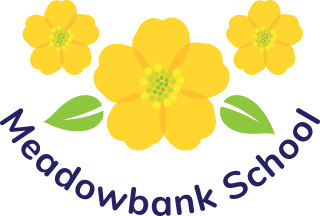Music Therapy
Our Music Therapist Abi works with us on a Monday. Staff will liaise with Abi to refer pupils who they feel may benefit from some Music Therapy sessions.
What is Music Therapy?
There are many different approaches to music therapy, but at the heart of all of them is a commitment to people flourishing, and a belief that music can be an important part of that process. I trained in the Nordoff-Robbins approach to music therapy, which focuses on making music with people, in whichever way they can. The music is built as much as possible from what someone offers, including body gestures and vocalisations- recognising and celebrating whichever way they choose to contribute. The musical relationship is central, and the therapeutic process happens through this. This can include building someone’s sense of empowerment, opportunity for expression, and increasing their resources to communicate and form relationships.
What happens in a session?
Sessions can be as varied as music and people are! A typical session will be 30 minutes, and can include a mixture of musical improvisation, familiar songs, song writing, composition, performance, accompanied listening and musical games. There are a variety of instruments in the room that someone can play in whichever way they choose, however a musical relationship can also be built on how someone moves or vocalises. Sessions can be for individuals, pairs, small groups and whole classes.
I take detailed notes after each session, and some of these observations can be used to support a pupil’s IPP, alongside a final written report.
How can this help?
All music therapy starts with the music therapist deeply listening to someone, and then communicating that listening in how they respond musically. This is to help someone ‘hear themselves being heard’, which can include the physicality of music making (gestures, vibrations) as well as aural perception.
Recognising that we are being listened to can encourage further communication- it shows ‘our voice matters’ and ‘what I do will be responded to’. This can lead to more initiating, exploration, persistence and choice making. In turn, it can also develop someone’s ability to listen to others too, increasing their ability to share a space, take turns, and respond.
All relationships start from a place of listening. By focusing on listening in a musical relationship, it can help build someone’s listening resources outside of music, enabling stronger relationships to develop.
Music therapy starts from a place of seeking to empower someone in the music that they are offering in that moment. It aims to then stretch musical communicativeness, expressivity and creative risk taking. This can lead to people developing through music in ways that may be harder to access outside of music, giving them a richer experience of themselves and others.
Any Questions?
Please do get in touch if you have any questions about music therapy!
To find out more about the Nordoff-Robbins approach to music therapy, and see examples of sessions, please visit: https://www.nordoff-robbins.org.uk/
For more information about the music therapy profession, please visit: https://www.bamt.org/
